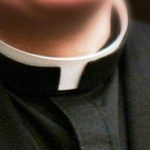Best of the Blogs
Is American law too complex? PrawfsBlawg featured an interesting exchange on this question last week. Eric Johnson initiated the exchange with this post, in which he observed:
There is a huge, obvious problem with the law. The bar studiously ignores it. Even the legal academy generally pretends it’s not there. It’s so large as to be beyond overwhelming.
The problem is this: Our system of justice is absurdly complex and time consuming.
. . .
There are three basic aspects to the mess: Endeavoring to understand the law is unduly complex and expensive, determining the facts is unduly complex and expensive, and teeing up the law and the facts for judges and juries is unduly complex and expensive.
In addition to a lively string of comments (including a couple by our own Rick Esenberg), Eric’s comments also prompted a thoughtful responsive post by Paul Horwitz.


 One of the recent challenges for Civil Procedure profs has been to explain the Twombly/Iqbal event to students already struggling to understand what often seems to be an arcane and highly contrived subject.
One of the recent challenges for Civil Procedure profs has been to explain the Twombly/Iqbal event to students already struggling to understand what often seems to be an arcane and highly contrived subject.